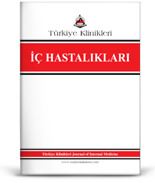Objective: The study was conducted to assess the effect of fluid management training given to hemodialysis patients on their fluid control skills, pre-and post-dialysis dry weights and quality of life. Material and Methods: This experimental and cross-sectional study was conducted to assess the effect of fluid management training given to hemodialysis patients on their fluid control skills, preand post-dialysis dry weights and quality of life. The study involved 80 patients who underwent dialysis in the Hemodialysis Unit in 2016. Of them, 40 were assigned to the intervention group and 40 were assigned to the control group using the simple random sampling method. The Patient Information Form, the Fluid Control and the Short Form-36 Quality of Life Scale were used. The data collected were analyzed using the SPSS 22.0 package program. For the statistical analysis, the Chi-Square, Friedman's test and Mann-Whitney U test were used. Results: Our result showed that the fluid intakes of the patients in the intervention group in the last two consecutive follow-ups decreased statistically significantly compared to their pre-observation fluid intakes, that there was a decrease in their pre-and postdialysis dry weights and that their quality of life increased as their fluid control improved. Conclusion: Fluid management training given to the hemodialysis patients positively affected their fluid control skills, pre-and post-dialysis dry weights and quality of life.
Keywords: Fluid balance; hemodialysis; patient education; quality of life
Amaç: Bu çalışma hemodiyaliz hastalarına verilen sıvı yönetimi eğitiminin, sıvı kontrolü, diyaliz giriş çıkış kuru ağırlıkları ve yaşam kalitesi üzerine etkilerinin değerlendirilmesi amacıyla yapılmıştır. Gereç ve Yöntemler: Deneysel ve kesitsel olarak yapılan çalışmaya 2016 yılında Hemodiyaliz Ünitesinde diyalize giren 80 hasta alınmış ve basit rastgele örnekleme yöntemi ile bu hastaların 40'ı müdahale grubuna, 40'ı kontrol grubuna atanmıştır. Çalışma verilerinin toplanmasında Hasta Bilgi Formu, Sıvı Kontrol Ölçeği ve Short Form-36 Yaşam Kalitesi Ölçeği kullanılmıştır. Veriler SPSS 22,0 paket programına yüklenmiş ve istatistiksel analizde Ki-Kare, Friedman F, Mann-Whitney U testleri kullanılmıştır. Bulgular: Çalışmamızda müdahale grubundaki hastaların izlem öncesine göre özellikle ardışık son iki izlemde istatistiksel olarak önemli düzeyde sıvı alımlarının azaldığı, diyalize giriş-çıkış kuru ağırlıklarında düşüş olduğu ve sıvı kontrolü attıkça yaşam kalitelerinin yükseldiği saptanmıştır. Sonuç: Elde edilen bulgular doğrultusunda, hemodiyaliz hastalarına verilen sistematik sıvı yönetimi eğitiminin hastaların sıvı kontrolü, diyaliz giriş çıkış kuru ağırlıkları ve yaşam kalitesini pozitif yönde etkilediği söylenebilir. Bu bağlamda hemodiyaliz sürecinin niteliğini artırmada planlı ve sistematik eğitimin önemli olduğu ve hemşirelere de bu alanda büyük sorumlulukların düştüğü ifade edilebilir.
Anahtar Kelimeler: Sıvı dengesi; hemodiyaliz; hasta eğitimi; yaşam kalitesi
- Acaray A, Pınar R. [The evaluation of the quality of life of chronic hemodialysis patients]. Cumhuriyet Nursing Journal. 2004;8(1):1-11.
- Akpolat T, Utaş C. [Hemodialysis Physician Handbook]. 1st ed. Samsun: Turkish Nephrology Publications; 2010. p.1-22.
- Ovayolu N, Ovayolu Ö. [The effect of hemodialysis sufficiency on quality of life]. Journal of Nephrology Nursing. 2013;1(6):39-52.
- Smith C, Da Silva-Gane M, Chandna S, Warwicker P, Greenwood R, Farrington K. Choosing not to dialyse: evaluation of planned nondialytic management in a cohort of patients with end-stage renal failure. Nephron Clin Pract. 2003;95(2):40-6. [Crossref ] [PubMed]
- Efe D, Kocaöz S. Adherence to diet and fluid restriction of individuals on hemodialysis treatment and affecting factors in Turkey. Jpn J Nurs Sci. 2014;12(2):113-23. [Crossref] [PubMed]
- Kugler C, Vlaminck H, Haverich A, Maes B. Nonadherence with diet and fluid restriction among adults having hemodialysis. J Nurs Scholarsh. 2005;37(1):25-9. [Crossref] [PubMed]
- Üstün ME, Karadeniz G. [The importance of the quality of life and informative nursing approach of hemodialysis patients]. Fırat Sağlık Hizmetleri Dergisi. 2006;1:33-43.
- Kral Ü, Yurtsever S. [The quality of life of hemodialysis patients living in the Turkish Republic of Northern Cyprus]. Journal of Nephrology Nursing. 2013;1:61-76.
- Hoving C, Visser A, Mullen PD, van den Borne B. A history of patient education by health professionals in Europe and North America: from authority to shared decision making education]. Patient Educ Couns. 2010;78(3):275-81. [Crossref] [PubMed]
- Krespi Boothby MR, Salmon P. [Self-efficacy and hemodialysis treatment: a qualitative and quantitative approach]. Turk Psikiyatri Derg. 2013;24(2):84-93.
- Merkus MP, Jager KJ, Dekker FW, De Haan RJ, Boeschoten EW, Krediet RT. Quality of life over time in dialysis: the Netherlands cooperative study on the adequacy of dialysis: NECOSAD study group. Kidney Int. 1999;56(2):720-8. [Crossref] [PubMed]
- Barnett T, Li Yoong T, Pinikahana J, Si-Yen T. Fluid compliance among patients having hemodialysis: can an educational programme make a difference? J Adv Nurs. 2008;61(3):300-6. [Crossref ] [PubMed]
- Ware JE Jr, Sherbourne CD. The MOS 36item short-form health survey (SF-36). I. conceptual framework and item selection. Med Care. 1992;30(6):473-83. [Crossref] [PubMed]
- Koçyiğit H, Aydemir Ö, Fişek G, Ölmez N, Memiş A. [Reliability of the Turkish version of short form-36 (Sf-36)]. İlaç ve Tedavisi Dergisi. 1999;12:102-6.
- Vlaminck H, Maes B, Jacobs A, Reyntjens S, Evers G. The dialysis diet and fluid non-adherence questionnaire: validity testing of a self-report instrument]. J Clin Nurs. 2001;10(5):707-15. [Crossref ] [PubMed]
- Kara B. [A validity and reliability study of the nonadherence questionnaire with dialysis diet and fluid restrictions]. Ataturk Universitesi Hemsirelik Yüksekokulu Dergisi. 2009;12:207.
- Albayrak Cosar A, Cinar Pakyuz S. Scale d velopment study: the fluid control in hemodialysis patients. Jpn J Nurs Sci. 2016;13(1):174-82. [Crossref ] [PubMed]
- Ageborg M, Allenius BL, Cederfjäll C. Quality of life, self-care ability, and sense of coherence in hemodialysis patients: a comparative study. Hemodial Int. 2005;9 Suppl 1:S8-14. [Crossref] [PubMed]
- Van Stone JC, Daugirdas JT. Physiologic principles. In: Daugirdas JT, Ing TS, eds. Handbook of Dialysis. 2nd ed. Boston: Little, Brown & Company; 1994. p.13-29.
- Arık N, Ateş K, Süleymanlar G, Tonbul HZ, Türk S, Yıldız A. [Hemodialysis Resource Book for Physicians]. 1st ed. Ankara: Güneş Medicine Publications. 2009. p.124.
- Valderrábano F, Jofre R, López-Gómez JM. Quality of life in end-stage renal disease patients. Am J Kidney Dis. 2001;38(3):443-64. [Crossref ] [PubMed]







.: Process List